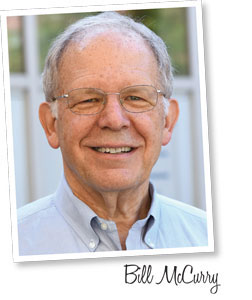5/1/2020
A Pair of Pants With Many Pockets
Bill McCurry

Family businesses are sometimes referred to as “a pair of pants with many pockets,” but do some of those pockets have a hole where something falls out never to return?
The first hole can result from separate ownership of land, buildings, equipment and the business itself. Often this is done to ease financing or better utilize tax benefits. There are logical reasons for setting things up this way. Have you reviewed them recently? Do changing conditions mandate a change?
A common pocket hole occurs when the company has an operating loss in a year it pays taxable rent to the family entity. The company may not get an immediate tax benefit from the rent paid, while the individuals likely have a taxable income. What if the company didn’t pay the rent? It could temporarily increase the company’s profitability, while reducing the taxable income of family members who were renting to the company. This has benefited some retailers, but seek competent local tax advice for your unique situation. The savings—and penalties—can be in the thousands of dollars if your situation doesn’t meet the criteria.
What about generational succession? Consider a third-generation family business where three grandkids are in the business and four aren’t. The second generation decides the kids in the business will inherit the operating garden center. Those outside will inherit the land it occupies. There are two major time bombs. First, 90% of the time owning the land is a slam dunk, long-term good investment. That’s not always the case for owning and operating a business. Have the kids who inherited the garden center actually gotten a significant asset of great value—or do they have jobs that may not pay them what they’re worth? Second, the four landowners will want higher rent to the detriment of the garden center owners.
No family wants inadequate planning to cause hostility at Thanksgiving dinner. The best solution is for the older generation to sit down with counsel and tell their attorney what they want for the future. Be alerted if your attorney sees significant loopholes. While your solution may not be the most tax-advantaged, weigh that cost against pitting family members against each other. Remember, many attorneys understand the law, but have a minimal understanding of family dynamics. You must outline the outcome you want. Ask your attorney to document the plan in plain English, otherwise you write it out so the heirs understand.
Have a family meeting to share your expectations. Take notes! Make it clear in the notes that on that date these were your intentions—and that all intentions are subject to change without notice. You’re not producing a verbal last will; you’re setting an expectation for how the family should function together after the transition.
If you want the real estate owners to continue renting to the garden center, say so with the other provisions in your estate plan. To achieve equity for the landowners, the garden center must pay the rent on time and live up to their obligations. Consider outlining rent increases and the terms under which the landlord may evict the garden center for non-payment. Should one calamitous year cause the garden center to be evicted? Think through all your desires and intentions, then share them with the family.
Occasionally, these meetings can be very contentious because someone isn’t getting what they want. If the older generation doesn’t handle the misunderstandings now, then after the transition family gatherings can be unpleasant—or non-existent—for decades. Perhaps speak privately with each family member before the main meeting; this requires you to be firm. If you’re uncertain about your plan, seek guidance from a family business center or trusted family advisor. Whatever your situation, first decide on your goals. Then get the family on board now.
Remember the old saying: “It’s better to give with a warm hand than a cold one.” GP
Bill would love to hear from you with questions, comments or ideas for future columns. Please contact him at wmccurry@mccurryassoc.com or (609) 688-1169.